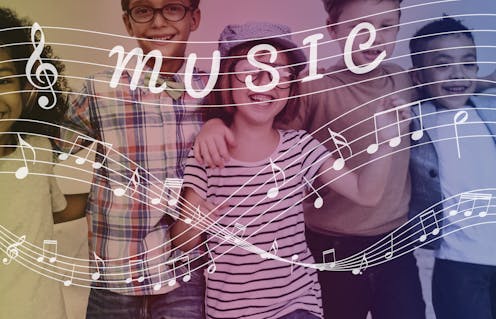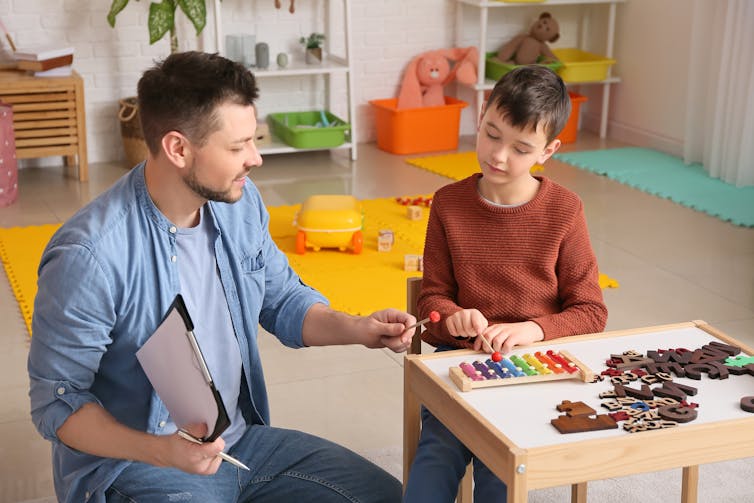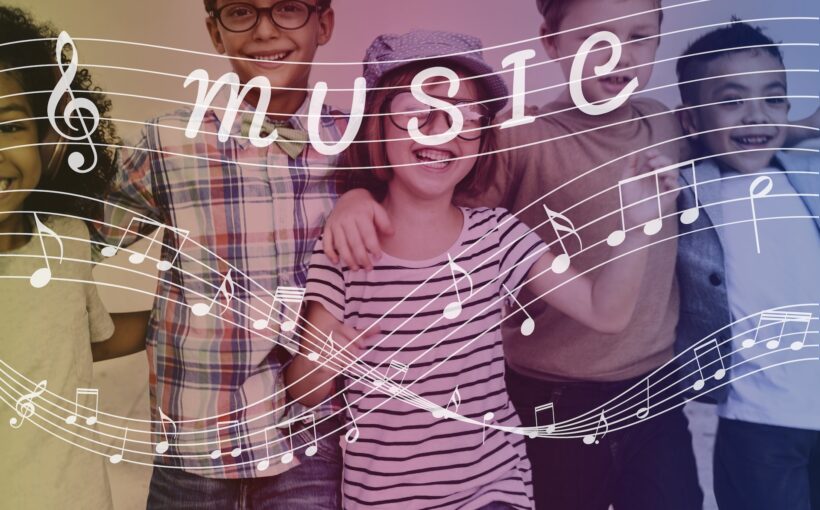
Over the past 20 years, the number of people forcibly displaced from their homes worldwide due to conflict has reached a figure in excess of 90 million. This has more than doubled since the early 1990s, a time period labelled “the decade of displacement” by the United Nations Refugee Agency. This rate of increase shows no signs of slowing and has been fuelled by the current situations in Syria and Ukraine.
Whatever the reason for displacement, there is no doubt that being forced to leave your homeland is traumatic. The journey to a safer place can be physically and emotionally challenging. Shock and denial are often the first emotions experienced by refugees.
Long-term problems include unmanageable emotions, flashbacks and difficulty with relationships. Physical symptoms such as nausea and headaches may also occur. While practical support such as providing physical safety, food and clothes and medical help are crucial, psychological support also needs to be offered.
Music therapy
Music therapy is well-placed to provide support in addressing trauma and promoting wellbeing. It is a psychological therapy which is regulated by the Health and Care Professions Council (HCPC) in the UK. Music therapists use a range of music-based interventions including interactive music-making, songwriting and listening to music. These help to build a therapeutic relationship with participants.
Music therapy offers a flexible and accessible way of supporting wellbeing and sharing difficult experiences. It can also bring positive memories of the cultures from which refugees have come. These can be shared with others and help to build resilience.
In the early stages of trauma, music can be part of a psychological first aid (PFA) package. PFA is usually offered in the initial aftermath of a traumatic event as well as in later stages. It seeks to provide people with safety, connections and hopefulness. The integration of these elements into music-based and music therapy interventions is useful for refugees.
Read more: Esol English classes are crucial for migrant integration, yet challenges remain unaddressed
Music is something found in every culture. People carry their own musical experiences with them wherever they go and can call on them for solace. Music can also be a go-to resource for those needing comfort. With such a huge range of musical genres and styles, there is something for everyone.
Because music is comprised of a series of different patterns – something the brain is attracted to and actively seeks out – there are opportunities for emotional regulation. This is central to supporting refugees’ wellbeing.
Moreover, music-making with a music therapist in the immediate aftermath of trauma offers the opportunity to build relationships, stabilise feelings and reduce anxiety. These are crucial steps in mitigating the impact of trauma.

During the course of my research, I have worked with a range of displaced people, including refugees and asylum-seeking families, focusing on families with children under the age of 3. My studies have shown that people who have had music therapy find it useful and supportive for a number of reasons.
It offers a safe space to meet others in music without the need for words or explanations. This space supports the development of feelings of safety as well as awakening creativity – something that is vital for mental health. Music therapy also fosters and builds connections with others in the same situation.
My projects used the core principles of PFA linked to music therapy for small groups of asylum-seeking families from Albania, Egypt, Syria and Pakistan. The simple, structured activities needed minimal English, so were accessible.
Movement to music, communication through rhythm games, free improvisation and songs from participants’ homelands as well as music from the UK were all used to engage the groups. This helped families feel a sense of belonging in their new home.
Feeling safe
The predictability of the sessions’ content was also helpful. People who experience trauma need help to feel safe, and providing a structured session does this. They also facilitated language development and social skills for the children.
Bonding as a family, something that can be disrupted by trauma, was also improved. To support this therapists can use lullabies and children’s songs from the original cultures of the families, as well as UK-based tunes – Twinkle Twinkle Little Star is always very popular.
Music and music therapy are useful tools to employ in planning PFA and continuing therapeutic support for refugees. While it is important to be sensitive to the wishes of refugee families who may not be ready to engage in musical activities, it is crucial that this provision is available to those who do wish to access it.
Refugees who engage with music and music therapy in their new homes often report improvements in their ability to manage their situation and move forward. Finding ways to offer access to these opportunities more widely will benefit greater numbers of those seeking to build new lives.
![]()
Elizabeth Coombes does not work for, consult, own shares in or receive funding from any company or organisation that would benefit from this article, and has disclosed no relevant affiliations beyond their academic appointment.



